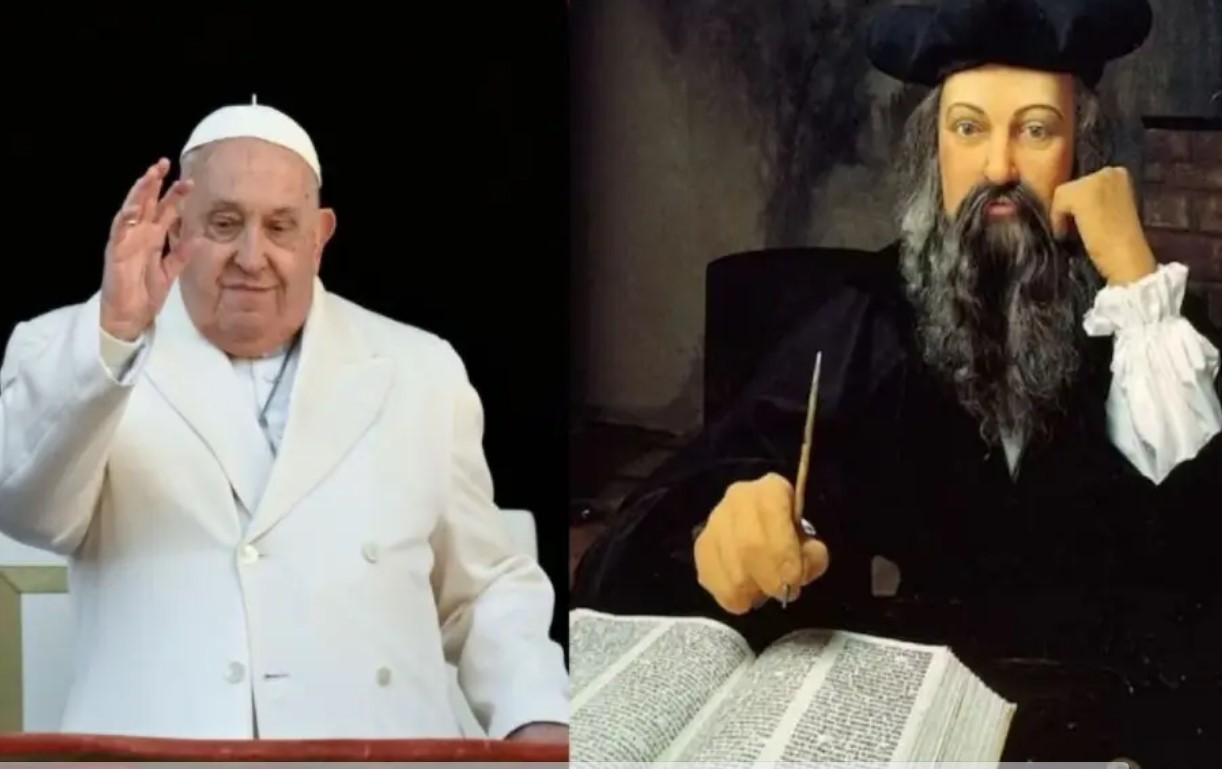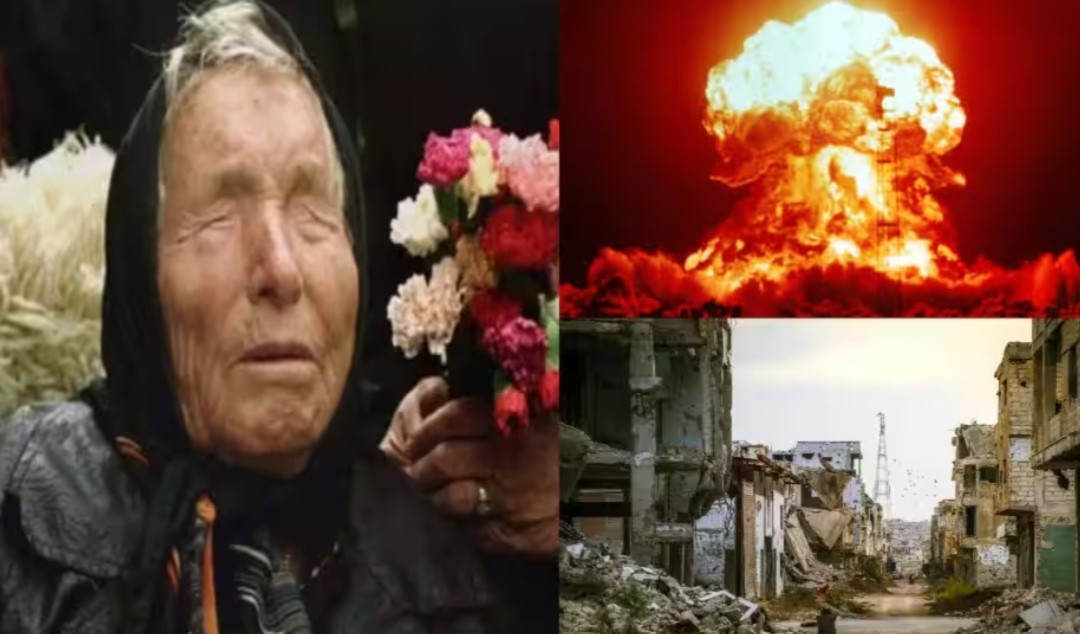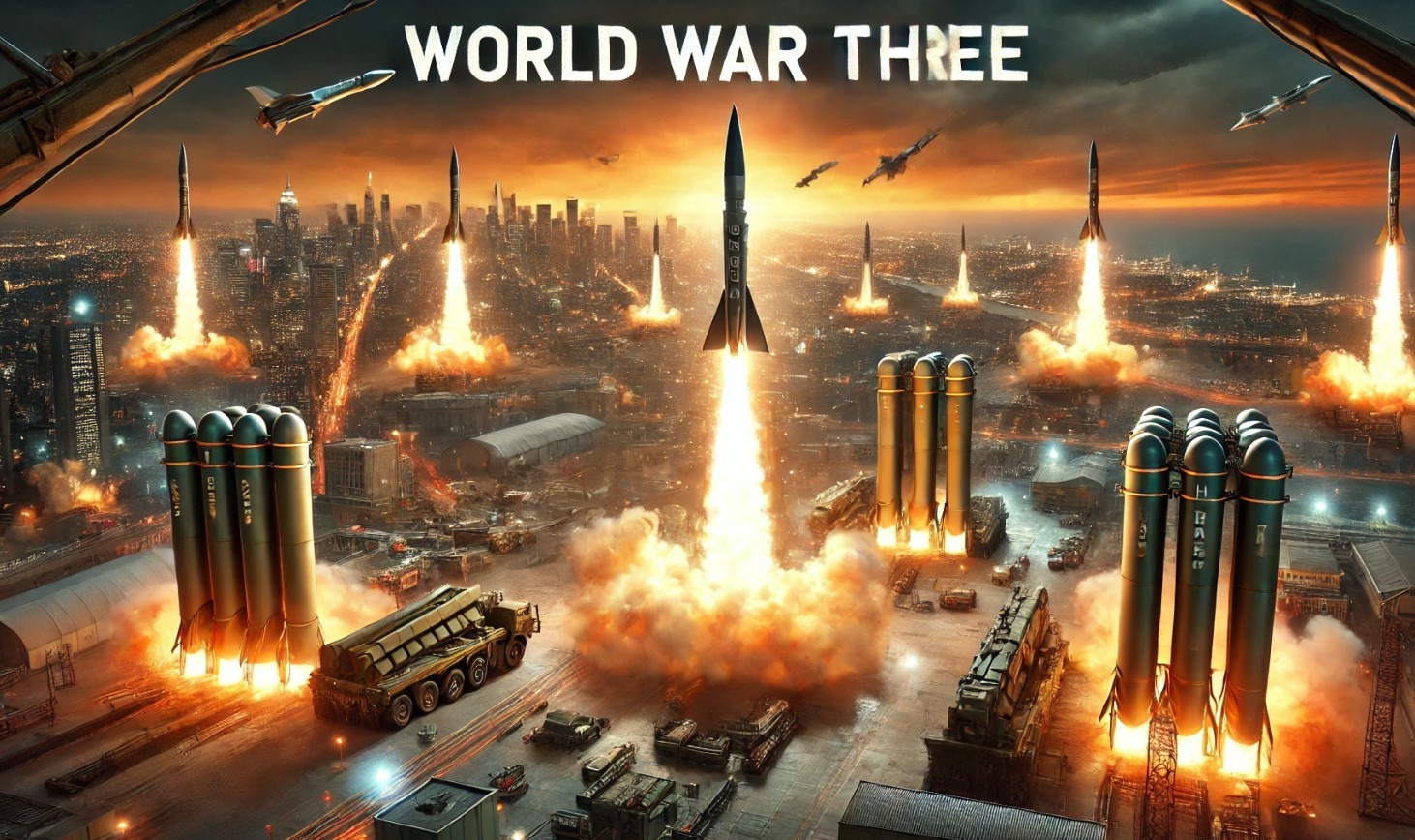World War III in the Predictions of Prophets and Thinkers
Throughout history, the idea of a third world war has captivated and terrified humanity. Prophets, seers, and visionaries, from ancient times to modern days, have claimed to foresee catastrophic conflicts that could reshape the world. While many of these predictions are shrouded in ambiguity, they remain compelling as they resonate with the fears of an increasingly unstable global landscape.
Learn more: The Threat of World War Three from Ukraine’s Use of Long-Range Missiles
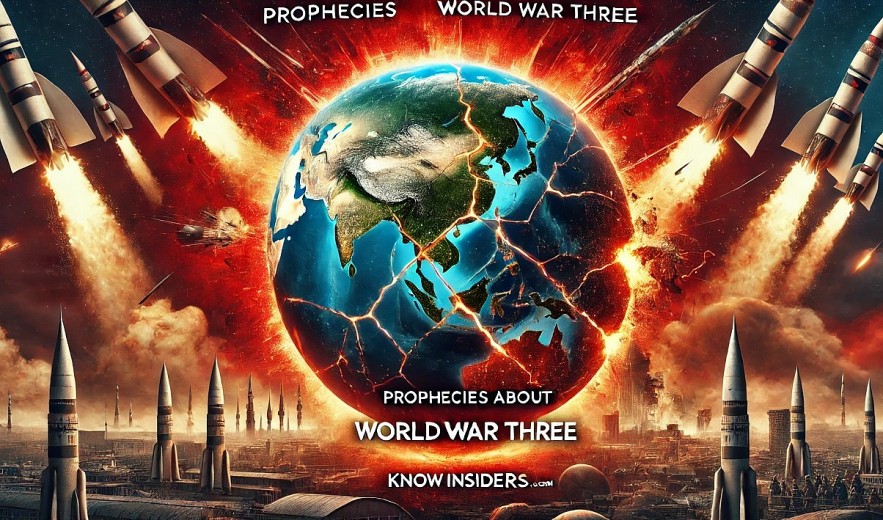 |
| Prophecies About World War Three |
1. Nostradamus (1503–1566): The Legendary Prophet
What He Predicted
Nostradamus, the French apothecary and astrologer, remains one of the most famous prophets in history. His cryptic quatrains have been interpreted as predictions of major world events, including wars.
-
In Century VIII, Quatrain 77, Nostradamus wrote: “The Third Big War will begin when the big city is burning.” This line has been interpreted as a reference to a future global conflict sparked by a major city being attacked.
-
Nostradamus’s writings also mention "fire from the sky," which many interpret as modern weapons like missiles or nuclear bombs.
Modern Interpretations
Supporters of Nostradamus believe his predictions align with current geopolitical tensions, particularly conflicts involving nuclear powers. His vague style leaves much to speculation, but the imagery of widespread destruction resonates with fears of World War Three.
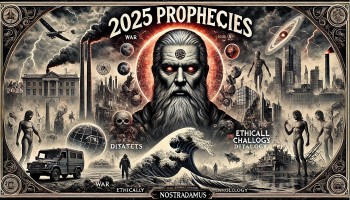 Nostradamus’ Prophecies for 2025: Insights into a Controversial Prophetic Legacy Nostradamus’ Prophecies for 2025: Insights into a Controversial Prophetic Legacy |
2. Baba Vanga (1911–1996): The Blind Mystic
Who Was Baba Vanga?
Baba Vanga, a blind mystic from Bulgaria, gained fame for her accurate predictions, including the rise of ISIS, the 9/11 attacks, and the Chernobyl disaster.
Predictions About World War Three
- Baba Vanga reportedly predicted that a third world war would begin with a series of small regional conflicts escalating into a global confrontation.
- She foresaw the use of nuclear weapons and a catastrophic environmental impact, resulting in widespread famine and disease.
Relevance Today
Many link her visions to current tensions between global powers like the U.S., Russia, and China. Baba Vanga’s warnings about advanced weaponry and environmental collapse are often associated with the consequences of modern warfare.
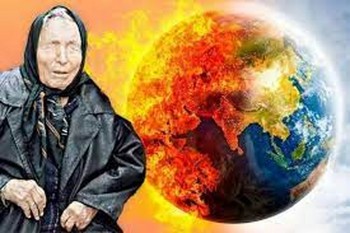 Predictions of Blind Prophet Vanga for 2025 and Beyond Predictions of Blind Prophet Vanga for 2025 and Beyond |
3. Albert Einstein’s Grim Warning
Not a Prophet, But a Visionary
Albert Einstein, one of the greatest scientific minds, did not predict World War Three in a mystical sense, but his reflections on the topic have been prophetic.
- Einstein famously said: “I know not with what weapons World War III will be fought, but World War IV will be fought with sticks and stones.” This implies that a third world war would be so devastating that it could obliterate modern civilization.
Scientific Basis for Fear
Einstein’s insight into the destructive potential of nuclear weapons continues to influence modern discourse on war, especially in an age of advanced missile systems and artificial intelligence in warfare.
4. Edgar Cayce (1877–1945): The Sleeping Prophet
Who Was Edgar Cayce?
Edgar Cayce, an American mystic, became famous for his "readings," during which he allegedly accessed visions of future events while in a trance.
Predictions About World War Three
- Cayce spoke of a future world war beginning due to conflicts over the South China Sea, Korea, or the Middle East.
- He warned that alliances between major powers could fracture, leading to chaos and widespread destruction.
How It Connects to Today
Cayce’s predictions about rising tensions in Asia and the Middle East have been linked to modern disputes, such as those involving China, Taiwan, and territorial disputes in the South China Sea.
5. Modern Prophets and Thinkers
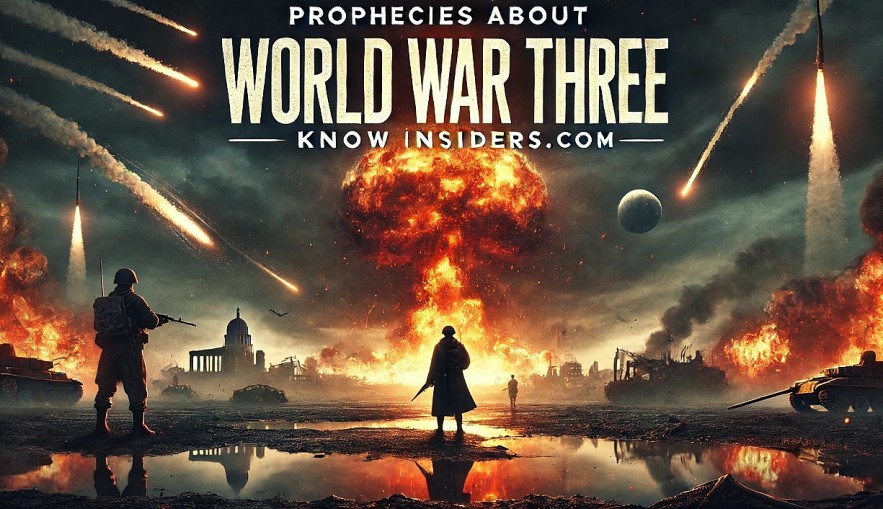 |
| The World on the Brink of World War III |
Jeane Dixon (1904–1997): The American Psychic
Jeane Dixon, a celebrated psychic in the 20th century, gained fame for her supposed prediction of President John F. Kennedy's assassination. Her visions extended to global conflicts, including the possibility of World War Three.
-
Dixon predicted that a devastating world war would start in the 21st century as a result of ideological and religious conflicts. She foresaw significant tensions in the Middle East playing a central role in the outbreak.
- She foresaw the use of nuclear weapons, significant casualties, and a protracted period of global instability.
- Dixon also suggested that the war would involve technological advancements in warfare, including weapons capable of mass destruction beyond conventional understanding.
-
Prophecy of a Savior: Dixon predicted that during or after this catastrophic war, a "Messianic figure" would emerge, uniting humanity and leading to a period of spiritual renewal.
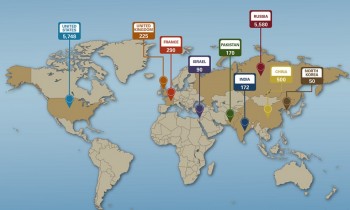 How Many Countries Are Armed with Nuclear Weapons in 2024/2025? How Many Countries Are Armed with Nuclear Weapons in 2024/2025? |
Mother Shipton (1488–1561): England’s Nostradamus
Although her writings date back centuries, Mother Shipton’s cryptic verses have been interpreted by modern readers to predict a third world war.
- Interpretations in the Modern Context:
- She described "fire and flood" destroying cities and nations, which some interpret as nuclear warfare and its aftereffects, such as environmental collapse.
- Some prophecies reference advancements in "iron serpents" and "talking to the sky," interpreted as technology like missiles and satellites, which could play key roles in a global war.
Technological Thinkers and AI Predictions
In recent years, the rise of artificial intelligence and predictive modeling has provided a new perspective on global conflict.
-
AI-Driven Predictions:
- Machine learning algorithms now analyze geopolitical data, highlighting hotspots for potential escalation. These include territorial disputes, resource scarcity, and cyber threats.
- Advanced models suggest that conflicts in the South China Sea, Eastern Europe, and Middle East have the highest probabilities of triggering a global conflict.
-
The Role of Technology in Escalation:
- AI and autonomous weapons increase the speed and unpredictability of modern warfare, making accidents or misinterpretations more likely.
- Cyberattacks on critical infrastructure, such as power grids or military networks, are now seen as a potential spark for larger wars.
Pop Culture and Its Influence
Prophecies of World War Three have not been limited to mystics; pop culture has long reflected society’s fears of global conflict, shaping how the public perceives the risk.
-
Literature:
- George Orwell’s 1984 imagined a dystopian world where superpowers engaged in perpetual war, resonating with Cold War fears that persist today.
- Nevil Shute’s On the Beach depicted life after nuclear war, highlighting the devastating environmental and human toll.
-
Films:
- Movies like Dr. Strangelove and Terminator explore humanity’s fears of technological warfare and nuclear apocalypse.
- These works amplify public anxiety by portraying scenarios where humanity’s own inventions become uncontrollable.
Scientific Visionaries
Prominent scientists, including those who worked on nuclear weapons during World War II, have also issued stark warnings about the potential for World War Three.
-
Albert Einstein:
- His famous quote—"World War IV will be fought with sticks and stones"—highlights the catastrophic impact of another global war on civilization.
-
Carl Sagan:
- Sagan warned about the consequences of nuclear war, particularly the phenomenon of nuclear winter, where widespread fires and soot block sunlight, leading to mass starvation and environmental collapse.
Contemporary Thinkers on Preventing Conflict
Modern philosophers and strategists often focus on how to avoid a third world war, emphasizing the importance of diplomacy and global cooperation.
-
Yuval Noah Harari:
- Harari, the author of Sapiens and Homo Deus, has warned that humanity’s increasing reliance on technology and AI could lead to catastrophic outcomes, including global war.
- He emphasizes the need for international regulation of autonomous weapons and a shift in global priorities to avoid resource-driven conflicts.
-
Noam Chomsky:
- Chomsky highlights the role of power struggles and imperialism in creating conditions for global conflict. He advocates for grassroots movements and public awareness to challenge policies that escalate tensions.
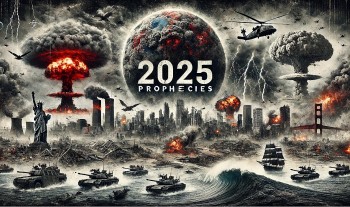 Prophecies for 2025 from Past and Present Seers Prophecies for 2025 from Past and Present Seers |
Themes Across Prophecies
Despite differences in origin and interpretation, many of these prophecies share common themes:
Nuclear Devastation: The recurring imagery of fire, explosions, and widespread destruction often correlates with modern fears of nuclear warfare.
Global Alliances Breaking Down: Many seers predicted conflicts resulting from fractured alliances between major powers.
Environmental Collapse: Predictions about environmental destruction align with modern concerns about the ecological consequences of war.
A Catalyst Event: Almost all predictions include a sudden event or spark, such as the attack on a major city, triggering a global conflict.
Skepticism and Reality
While these prophecies are intriguing, they should be approached with caution:
- Many predictions are vague and open to interpretation, often fitting a range of scenarios.
- Skeptics argue that humans tend to retroactively interpret events to match past predictions.
- Advances in diplomacy, international relations, and deterrence mechanisms like nuclear treaties have so far prevented global warfare.
The Modern World and the Risk of World War Three
Geopolitical Tensions
- Russia-Ukraine Conflict: Russia’s warnings about NATO involvement in Ukraine and the use of long-range missiles have heightened fears of escalation.
- China-Taiwan Relations: Rising tensions between China and the U.S. over Taiwan have been described as a flashpoint for global conflict.
- Nuclear Proliferation: Nations like North Korea and Iran continue to develop nuclear capabilities, increasing the risk of regional conflicts with global repercussions.
Efforts to Prevent War
- Diplomacy and multilateral agreements remain critical in reducing tensions.
- International organizations, such as the United Nations, play a vital role in mediating disputes.
- Advances in technology, including AI, offer tools for predicting and preventing conflicts, although they also raise ethical concerns.
Conclusion: Are Prophecies About World War Three Coming True?
The idea of World War Three has haunted human imagination for centuries, with prophets from Nostradamus to Baba Vanga offering chilling visions of global catastrophe. While many of their predictions remain speculative, they reflect enduring fears about humanity’s capacity for destruction.
Modern geopolitical realities—such as nuclear proliferation, resource conflicts, and climate crises—lend credence to some of these warnings. However, humanity’s ability to avoid global conflict so far demonstrates the power of diplomacy, innovation, and collective responsibility.
Whether prophecy or reality, the threat of World War Three is a stark reminder of the importance of vigilance and the pursuit of peace in an increasingly interconnected and fragile world.
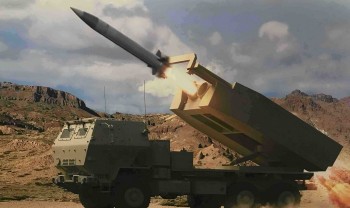 What is ATACMS? The Long-Range U.S. Missile Empowering Ukraine Against Russia What is ATACMS? The Long-Range U.S. Missile Empowering Ukraine Against Russia President Biden has authorized the first use of U.S.-supplied long-range missiles by Ukraine for strikes inside Russia. This article explores what ATACMS is, its military ... |
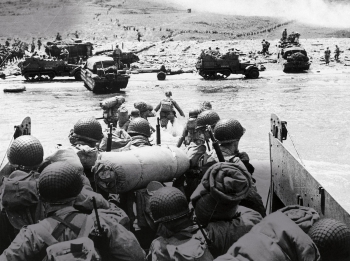 22 Impressive Facts About D-Day - WWII 22 Impressive Facts About D-Day - WWII It is the fact that the Nazi Germany seemed unstoppable during the Second World War. However, the risky action changed the the situation. |
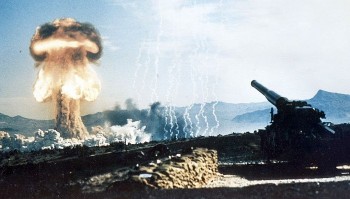 What is the Cold War: Causes, Purpose and Will There be More World War? What is the Cold War: Causes, Purpose and Will There be More World War? What is Cold War? Evolution and nature of the cold war? Purpose and consequences of the cold war? Will the world continue to have a ... |

